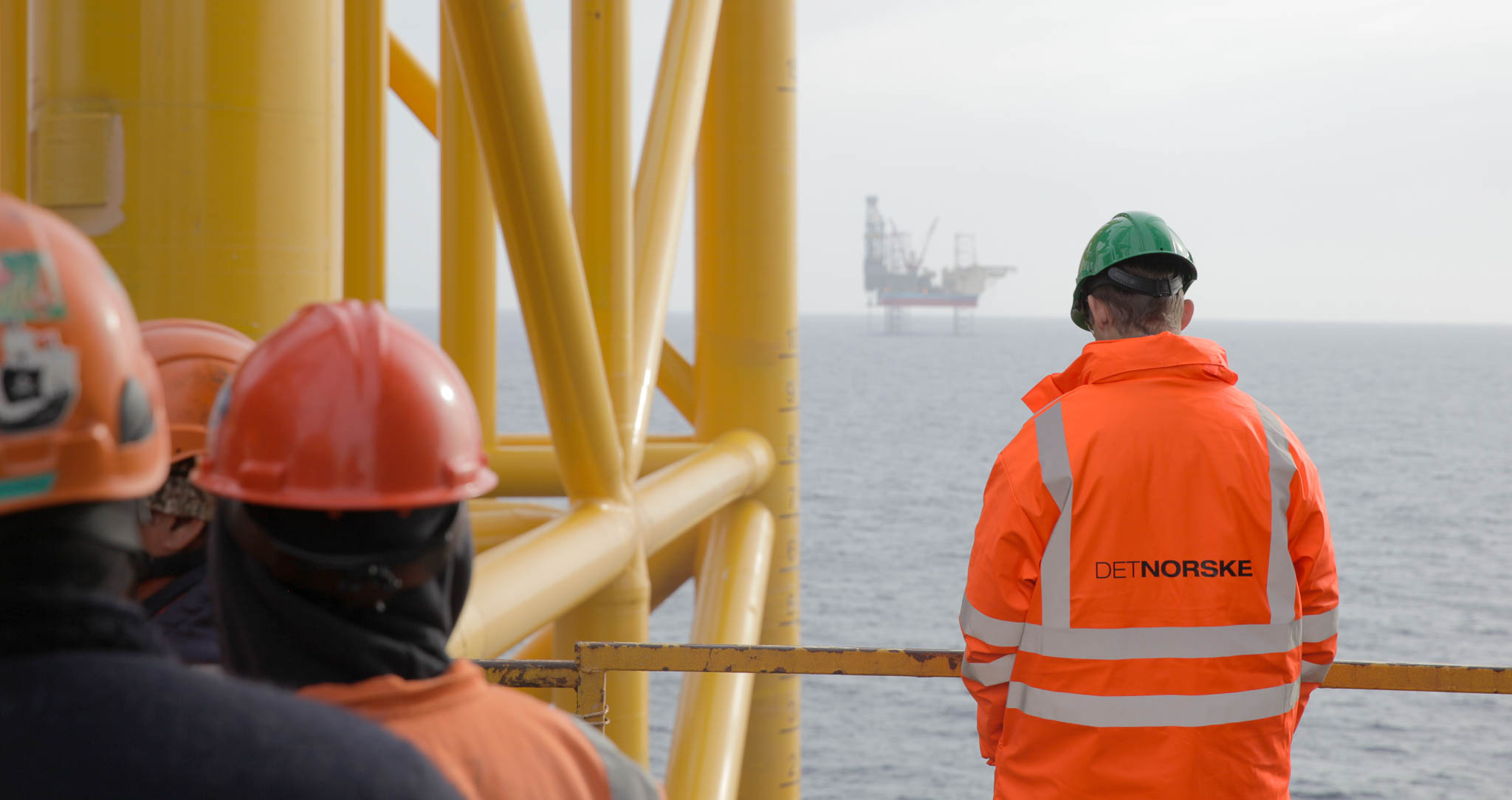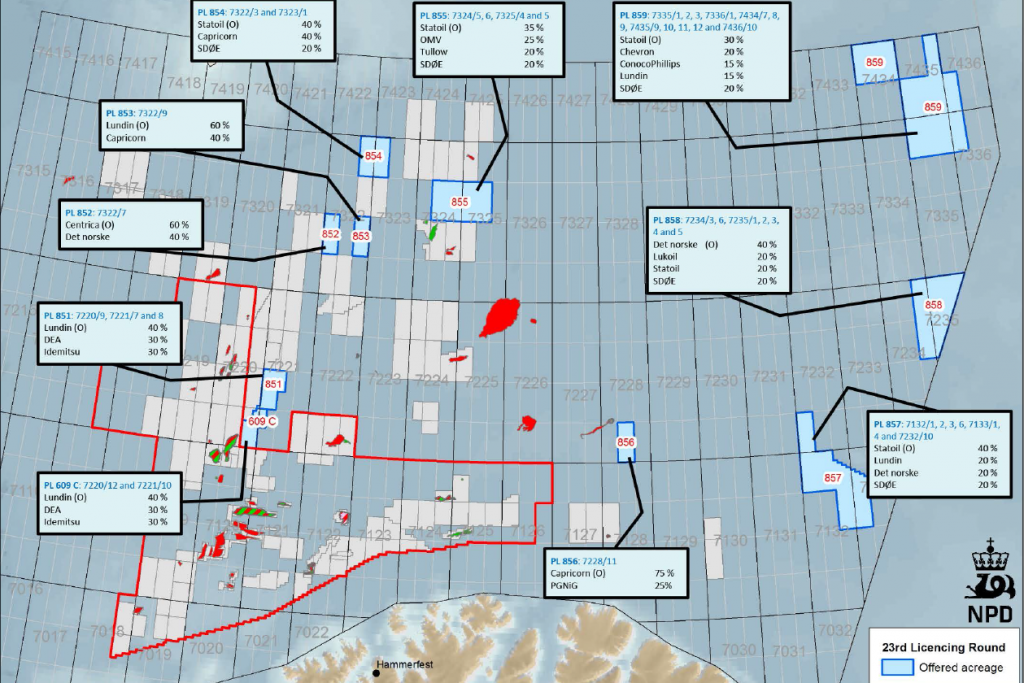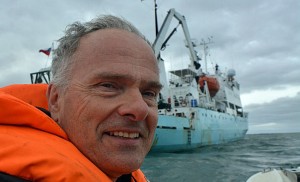What drilling along Russia’s maritime boundary will mean for Norway

An oil and gas expert talks about the new Arctic licenses issues by Norway, as the Nordic country moves its oil industry into new previously untouched Arctic areas.
The 40 new blocks issued as part of Norway’s 23rd License Round includes areas located further north and further east than ever before on the Norwegian shelf. Among them are blocks located directly along Norway’s maritime border with Russia.
«This is top politics», Johan Petter Barlindhaug says to the Barents Observer. «The closer to Russia, the more politics», he maintains.
The Norwegian analyst and businessman argues that Norway must proceed with its plans in the area despite current sensitivity in relations with the big neighbor.
What’s at stake for Lukoil

The license PL858 is located directly along the border and will be operated by Norwegian company Det Norske (40%) along with Lukoil (20%), Statoil (20%) and SDØE (20%). Two other nearby license areas will be operated by Statoil, information from the Norwegian Petroleum Directorate shows.
According to Johan Petter Barlindhaug, a major oil discovery in the license area would significantly strengthen the role of Lukoil in the region. «It would give the Norwegians a Russian on their side», he adds, and refers to the fact that Lukoil is currently not allowed to operate in Russian waters.
According Daniel Fjærtoft from the Sigra Group, this is what makes license PL858 interesting.
«The PL858 is exciting because Lukoil is not approved for offshore projects in its Russian home marked. If a discovery is made [in the license area] it will be a paradox that Russian private capital appears welcome in Norway, but not in Russia».
Opportunity for cooperation

Also Arild Moe from the Fridtjof Nansen Institute sees the inclusion of Lukoil as a cooperative approach from the Norwegian side.
«Lukoil’s participation can be seen as a signal about a desired commercial cooperation with Russian companies despite the current limitations on the Russian shelf because of the sanctions», he says to the Barents Observer.
The areas in question were delimitated only in 2011, and are considered highly prospective. Bente Nyland, the leader of Norway’s Petroleum Directorate, in 2012 admitted that seismic data from the area gives her «stars in the eyes».
Some oil experts belive the area could hide «an elephant». Most of the resources in the area is believed to be gas.
Russian interests
According to Johan Petter Barlindhaug, the Russians will hardly be interested in cross-border developments of the area if there is only gas. However, if there is oil, the Russians might be ready, he says.
The border delimitation agreement from 2011 lays down detailed procedures for cross-border activities in the area. If hydrocarbons are discovered on one side of the border, the other side will have to engage if a field is to be developed.
On the Russian side of the border, state company Rosneft holds the Fedyinsky license in partnership with Italian company Eni.
Related stories from around the North:
Canada: Trudeau and Obama’s Arctic endeavours, Deutsche Welle Ice-Blog
Finland: Experts question Finland’s energy decisions, data, Yle News
Norway: Nobel Peace Prize winners call for halt to Arctic drilling, The Independent Barents Observer
Russia: Spilled oil spreads into more rivers, fuels popular discontent, The Independent Barents Observer
Sweden: Will Sweden be able to produce enough energy in the future?, Radio Sweden
United States: Do Arctic villages need oil? Some Alaska tribal leaders say ‘no’, Alaska Public Radio Network



